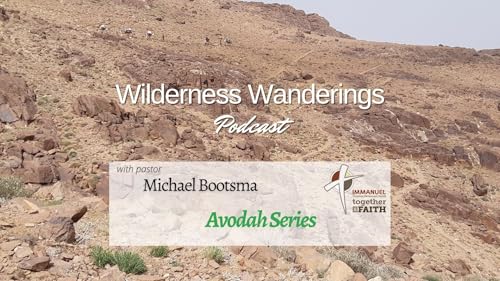
Remember Your God
Échec de l'ajout au panier.
Échec de l'ajout à la liste d'envies.
Échec de la suppression de la liste d’envies.
Échec du suivi du balado
Ne plus suivre le balado a échoué
-
Narrateur(s):
-
Auteur(s):
À propos de cet audio
Our text is Deuteronomy 6:12:
"Do not forget the LORD."
Have you ever wondered why the book of Deuteronomy is so long? Why did Moses give such a long sermon to Israel as they were about to enter the promised land? Forty years wandering in the desert; they can smell the aromas of new land; they want to cross over; they want to finish the trip; to settle down; to build houses; to have homes. But Moses holds up a stop sign saying "Now, listen to me." The kids know its lecture time.
Why? Moses sees that the land of Canaan is an enormous temptation. The affluence of the land will create a crisis in covenant faith. The new land will produce so well that Israel will think they can manage on their own. They will be tempted into thinking, "We don't really need the Lord God". Prosperity will breed amnesia. He warns against this, "be careful that you do not forget the Lord, who brought you out of Egypt, out of the land of slavery" (6:12) and "make sure you don't become so full of yourself and your things that you forget" YOUR God (8:14 MSG).
Moses wanted the Israelites to remember where they came from, the system of unbearable pressure in which they had to meet impossible brick production schedules. If they forget the God who freed them from Egypt, they are likely to create their own pressure system. Without remembering this history, they will become materialistic, believing that the goal of life is to acquire and acquire and acquire. A system of acquisition pits neighbour against neighbour.
In Deuteronomy, Israel is warned to "Watch out!" or the land in its productivity will transform them into producers and consumers and will destroy the fabric of the covenantal neighborhood. The market of acquisition regards the land as property and possession to be bought and sold and traded and used.
Israel is not to view the land this way. For her, the land is a birthright and an inheritance, one's own property is part of the larger inheritance of the whole people of God. If the land is possession, then we live with the pressure to acquire more. If the land is inheritance, then we live to enhance the neighborhood and the extended family so that all members may enjoy the good produce of the land.
The economy was not to become a rat race in which people were exhausted from coercive goals; it was, rather, a covenantal enterprise for the sake of the whole community. In Deuteronomy, Moses exhorts Israel to reject the acquisitive culture of its neighbors for the sake of this covenantal alternative.
How were they to remember? Simple. Keep Sabbath, which is remembering who they were and where they came from. We live in a very different time and place. Yet, the temptation is the same: to join the rat race. The way out of the rat race is the same: Sabbath, remembering that we belong to God through the redemptive suffering of Jesus Christ. What will you do this weekend?
As you journey on, here Jesus' invitation:
Come to me, all you who are weary and burdened, and I will give you rest. Take my yoke upon you and learn from me, for I am gentle and humble in heart, and you will find rest for your souls (Matthew 11:28-29).



